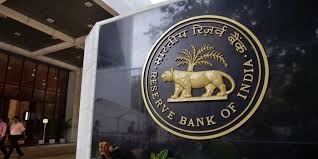New Delhi: Severely admonishing the RBI and the PMO, the Central Information Commission has again directed them to disclose the list of willful defaulters and Raghuram Rajan’s letter on bad loans.
In a 66-page order, the panel pulled up the Prime Minister’s Office for not complying with its directive to disclose the letter from former RBI Governor Rajan on bad loans.
Information Commissioner Sridhar Acharyulu said, “If there is any objection based on any exception, the PMO should have pleaded such provision and justify their denial.”
He said the PMO refused to comply with the direction of disclosure of action on Rajan’s letter on “grounds which are not legal, which is unfortunate”.
Acharyulu was hearing the plea of Sandeep Singh who had sought details of bank loan defaulters.
The commission had earlier issued a show-cause notice to RBI Governor Urijit Patel for “dishonouring” a Supreme Court judgment and CIC directive on disclosure of the list of willful defaulters.
The PMO has a “moral, constitutional and political duty” to tell the citizens as to who the defaulters are and what action has been taken to recover the huge loans advanced to them by banks, from out of taxpayers’ money, he said.
The commissioner said several categories of information were declared by the RBI as not disclosable as part of their ‘‘disclosure policy’’ and the RBI calls the exceptional clauses under the RTI Act as ‘‘enabling’’ provisions.
‘‘It is against the RTI Act, the collective intention of Parliament, affront to democracy, reflecting disrespect to the Supreme Court’s directions in RBI v Jayantilal N Mistry case. The RBI has a strong legal team with experienced legal experts and meritorious graduates from National Law Schools, yet has audacity to openly defy RTI Act, CIC directions and judgment of the Supreme Court,’’ he said.
He said as per law, in each RTI request, the CPIO and First Appealing Authorty (FAA) of the RBI need to justify the denial under exceptions prescribed under sections 8 and 9 of the RTI Act.
‘‘But any public authority cannot declare that it will never give such information as declared by the RBI. Exceptional provisions under the RTI Act cannot straight away enable a public authority to deny in advance,’’ he said.
Acharyulu said in spite of the Supreme Court’s direction that Section 22 of the RTI Act will override the RBI Act and other Acts, the RBI again quoted those Acts and declared that it would not give information.
‘‘The RBI has ignored the provisions of the RTI Act,’’ he said. This non-disclosure in the name of ‘disclosure’ policy is also in contradiction of various office memorandum and guidelines issued by the Department of Personnel and Training under the RTI Act, he said.
“If the RBI does not respect the SC orders and denies the citizens right to information, it will result in perpetuation of financial regime of secrecy that is potential enough to facilitate financial frauds and allow fraudulent rich and influential business persons to flee the country, as witnessed in recent times,” Acharyulu said.
He again directed the PMO to disclose the names of the defaulters, action taken for recovery of loans in response to Rajan’s letter and the policy, if any, about recovery from defaulters including high-profile ones.






































